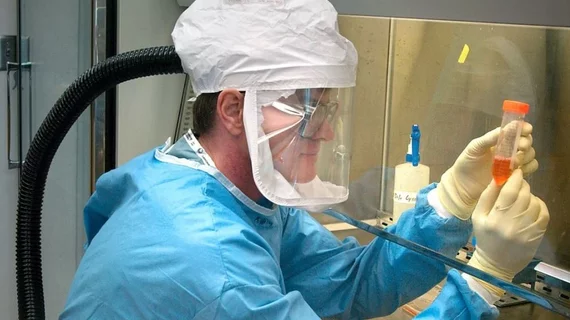COVID-19 brings out the heroic in forensic pathologists
Radiology and pathology have much in common. Both work with images. Both serve patients primarily by serving clinicians. And both are first and foremost diagnostic specialties.
But in the face of the coronavirus crisis, all radiologists can do for some of their pathologist peers is stand, salute and express solidarity. This comes to light in a Q&A conducted for The Conversation with Ahmad Samarji, a forensic pathologist in Lebanon.
Asked what dangers the pandemic presents for his specialty, Samarji replies, in part:
“Despite all protective measures, forensic experts are at constant risk of exposure to this deadly virus. And when pathologists in hard-hit areas contract coronavirus, it intensifies a vicious cycle.”
Samarji goes on to point out that, in general, forensic exams of the deceased don’t require complex medical equipment like that used in other medical specialties.
“But our work falls within larger chains of events,” he says. “Hospitals must have the capacity to identify the person, determine their cause of death, physically dispose of the body and work through the various legal complexities that these cases attract—and to do so swiftly.”
Read the whole thing:

